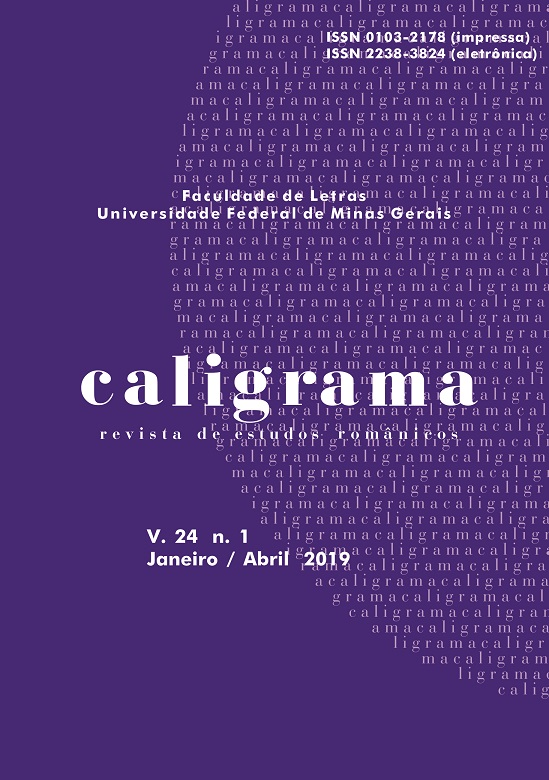O pensamento liminar como uma resposta à colonialidade do poder em La mano en la tierra, de Josefina Plá
DOI:
https://doi.org/10.17851/2238-3824.24.1.65-85Palavras-chave:
pensamento liminar, colonialidade do poder, pós-colonialismo, literatura latino-americana, gênero, border thinking, coloniality of power, post colonialism, Latin American literature, gender.Resumo
Resumo: Este artigo tem a intenção de fazer um estudo da literatura latino-americana pela perspectiva pós-colonial como representação de uma dada realidade, para demonstrar que o conceito de “Pensamento Liminar” (MIGNOLO, 2003) é uma resposta potencial do Hemisfério Sul às novas investidas de domínio percebidas pela descrição do conceito de “Colonialidade do Poder” (QUIJANO, 2005), advindas do Hemisfério Norte. Neste contexto, analisarei ambos os conceitos e as estratégias pós-coloniais pertinentes à esta análise, adentrando o conto La mano en la tierra (2002), da escritora Josefina Plá, a fim de averiguar o papel da mulher local, neste caso Ursula, uma indígena Guarani paraguaia, e sua relevância na narrativa e nas questões de gênero que implicam parcela deste estudo.
Palavras-chave: pensamento liminar; colonialidade do poder; pós-colonialismo; literatura latino-americana; gênero.
Abstract: This paper aims to develop a study on the Latin American Literature through the post-colonial perspective as a representation of a certain reality, to demonstrate that the concept of “Border Thinking” (MIGNOLO, 2003) is a potential answer from the South Hemisphere towards the new control quests which are perceived through the concept of “Coloniality of Power” (QUIJANO, 2005), from the North Hemisphere. Within this context, I will analyze both concepts and also the post-colonial strategies that connect to it, investing in the short story La mano en la tierra (2002), written by Josefina Plá, to investigate the role of the local woman, in this case Ursula, a Guarani indigenous lady from Paraguay, and her relevance in the narrative as well as in the gender debate which implies part of this study.
Keywords: border thinking; coloniality of power; post colonialism; Latin American literature; gender.





